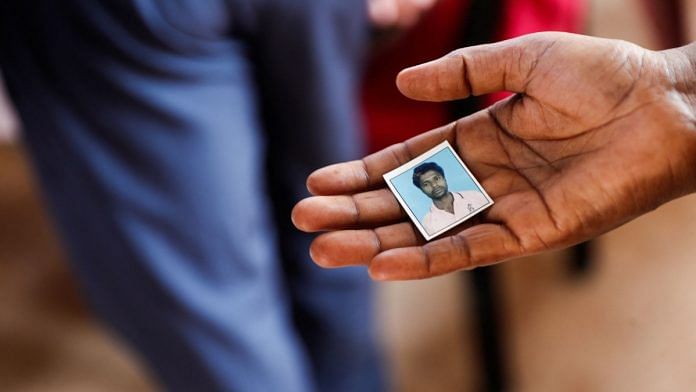Balasore: Indian authorities made fervent appeals to families on Tuesday to help identify over 100 unclaimed bodies kept in hospitals and mortuaries after 275 people were killed in the country’s deadliest rail crash in over two decades.
The disaster struck on Friday, when a passenger train hit a stationary freight train, jumped the tracks and hit another passenger train passing in the opposite direction near the district of Balasore in the eastern state of Odisha.
Till Monday evening around 100 bodies were yet to be identified, a senior state health department official told Reuters.
Bijay Kumar Mohapatra, health director of Odisha, said authorities were trying to source iced containers to help preserve the bodies.
“Unless they are identified, a post mortem cannot be done,” Mohapatra said, explaining that under Odisha state regulations no autopsy can be conducted on an unclaimed body until 96 hours has passed.
At state capital Bhubaneswar’s biggest hospital, the All India Institute of Medical Sciences (AIIMS), large television screens displayed pictures of the dead to help desperate families who are scouring hospitals and mortuaries for friends and relatives.
A detailed list was made of distinguishing features for each body, but relatives could first view photographs, however gruesome, to identify missing loved ones, a senior police official told Reuters.
The trains had passengers from several states and officials from seven states were in Balasore to help people claim the bodies and take the dead home, the police official added.
A forlorn Parbati Hembrum, from West Bengal’s Hooghly district, stood near the help desk at the Balasore railway station, looking for information on her son Gopal.
The 20-year-old had travelled in the Coromandel Express with three others from their village but while the other three returned home Gopal has not.
Tarapada Tudu, standing next to his relative Hembrum, said Gopal was admitted in Balasore hospital after the accident but when they looked for him there, the hospital said he was released the same day after being treated for minor injuries.
But, filled with dread over the lack of contact with Gopal, Tudu said he and Hembrum will travel to Bhubaneswar to look for him among the dead.
A team from the federal Central Bureau of Investigation reached the site on Tuesday to start a probe into the cause of the disaster while a separate inquiry by railway’s safety commission started on Monday.
A signal failure was the likely cause of the disaster, according to preliminary findings, which indicated the Coromandel Express, heading southbound to Chennai from Kolkata, moved off the main line and entered a loop track – a side track used to park trains – at 128 kph (80 mph), crashing into the stationary freight train.
That crash caused the engine and first four or five coaches of the Coromandel Express to jump the tracks, topple and hit the last two coaches of the Yeshwantpur-Howrah train heading in the opposite direction at 126 kph on the second main track.
Following non-stop efforts to rescue survivors and clear and repair the track, trains resumed running over that section of the line on Sunday night.
(Reporting by Jatindra Dash and Krishn Kaushik, additional reporting by Francis Mascarenhas; Writing by Sudipto Ganguly; Editing by Simon Cameron-Moore)
Disclaimer: This report is auto generated from the Reuters news service. ThePrint holds no responsibilty for its content.
Also read: Railway officers overburdened. Bring in technical experts, not IRMS to solve safety issues



